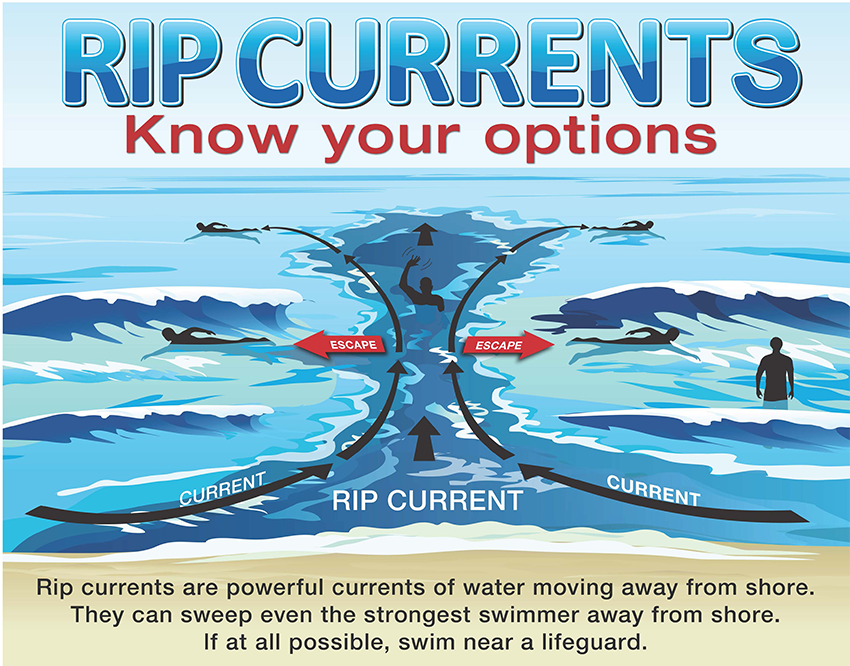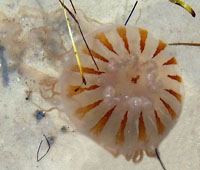Beach safety tips
Swim in front of a lifeguard and watch for rip currents.
- Always swim in front of a lifeguard.
- Ask a lifeguard about surf conditions and rip current risks.
- Watch children carefully when they are in the ocean.
Rip currents are channels of fast-moving water that can pull even the most experienced swimmers from shore.

- If you are caught in a rip current, remain calm and do not fight the current. Swim parallel to the shore until you are out of the current and then swim to the shore.
- If you are unable to swim out of the current, calmly float or tread water. If you are unable to reach shore, draw attention to yourself by waving or yelling for help.
- If you see someone in trouble, don't become a victim too. Throw the person something that floats. Get help from a lifeguard or call 9-1-1.
Beach safety
- Children should be monitored constantly on the beach.
- Take small children by the hand when crossing traffic.
- Sunbathing is permitted west of the parking area and east of the traffic lanes.
- Do not sit, lie or place personal property in the driving or parking areas.
- Alcohol, fireworks, pets and glass containers are not permitted on the beach.
- View information about driving and parking on the beach.
Jellyfish stings

Jellyfish are common in Atlantic waters and sometimes wash ashore. Jellyfish stings are rarely serious, but they may require first aid treatment. If you are stung by a jellyfish, go to the nearest lifeguard for assistance.
Lightning
Lightning can strike as far as 10 miles from where it's raining. As soon as you hear thunder, leave the beach and take shelter in an enclosed vehicle or building. Stay off the beach for 30 minutes after the last clap of thunder.

